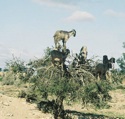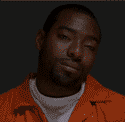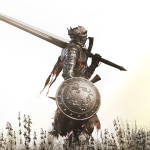|
Welcome goonlings to the Awful Book of the Month! In this thread, we choose one work of Resources: Project Gutenberg - http://www.gutenberg.org - A database of over 17000 books available online. If you can suggest books from here, that'd be the best. SparkNotes - http://www.sparknotes.com/ - A very helpful Cliffnotes-esque site, but much better, in my opinion. If you happen to come in late and need to catch-up, you can get great character/chapter/plot summaries here.  For recommendations on future material, suggestions on how to improve the club, or just a general rant, feel free to PM me. For recommendations on future material, suggestions on how to improve the club, or just a general rant, feel free to PM me.  Past Books of the Month [for BOTM before 2015, refer to archives] 2015: January: Italo Calvino -- Invisible Cities February: Karl Ove Knausgaard -- My Struggle: Book 1. March: Knut Hamsun -- Hunger April: Liu Cixin -- 三体 ( The Three-Body Problem) May: John Steinbeck -- Cannery Row June: Truman Capote -- In Cold Blood (Hiatus) August: Ta-Nehisi Coates -- Between the World and Me September: Wilkie Collins -- The Moonstone October:Seth Dickinson -- The Traitor Baru Cormorant November:Svetlana Alexievich -- Voices from Chernobyl December: Michael Chabon -- Gentlemen of the Road 2016: January: Three Men in a Boat (To say nothing of the Dog!) by Jerome K. Jerome February:The March Up Country (The Anabasis) of Xenophon March: The Name of the Rose by Umberto Eco April: Plain Tales from the Hills by Rudyard Kipling May: Temple of the Golden Pavilion by Yukio Mishima June:The Vegetarian by Han Kang July:Lud-in-the-Mist by Hope Mirrlees August: Pale Fire by Vladimir Nabokov September:Siddhartha by Herman Hesse October:Right Ho, Jeeves by P.G. Wodehouse November:Kitchen Confidential by Anthony Bourdain December: It Can't Happen Here by Sinclair Lewis 2017: January: Mother Night by Kurt Vonnegut February: The Plague by Albert Camus March: The Dispossessed by Ursula K. LeGuin April: The Conference of the Birds (مقامات الطیور) by Farid ud-Din Attar May: I, Claudius by Robert Graves June: Salt: A World History by Mark Kurlansky July: Ficcionies by Jorge Luis Borges August: My Life and Hard Times by James Thurber September: The Peregrine by J.A. Baker October: Blackwater Vol. I: The Flood by Michael McDowell November: Aquarium by David Vann December: Sir Gawaine and the Green Knight [Author Unknown] 2018 January: Njal's Saga [Author Unknown] February: The Sign of the Four by Arthur Conan Doyle March: Lincoln in the Bardo by George Saunders April: Twenty Days of Turin by Giorgio de Maria May: Lectures on Literature by Vladimir Nabokov June: The Electric Kool-Aid Acid Test by Tom Wolfe July: Warlock by Oakley Hall August: All Creatures Great and Small by James Herriott September: The Magus by John Fowles October: I'll Be Gone in the Dark by Michelle McNamara November: Arcadia by Tom Stoppard December: Christmas Stories by Charles Dickens Current: Roadside Picnic by Arkady and Boris Strugatsky  Book available here: https://www.amazon.com/Roadside-Picnic-Rediscovered-Classics-Strugatsky/dp/1613743416 About the book: quote:Roadside Picnic is a work of fiction based on the aftermath of an extraterrestrial event called the Visitation that simultaneously took place in half a dozen separate locations around Earth over a two-day period. Neither the Visitors themselves nor their means of arrival or departure were ever seen by the local populations who lived inside the relatively small areas, each a few square kilometers, of the six Visitation Zones. The zones exhibit strange and dangerous phenomena not understood by humans, and contain artifacts with inexplicable, seemingly supernatural properties. quote:The story was written by the Strugatsky brothers in 1971 (the first outlines were written January 18–27 in Leningrad . . . About the Author(s) quote:The Strugatsky brothers (братья Стругацкие or simply Стругацкие) were born to Natan Strugatsky, an art critic, and his wife, a teacher. Their father was Jewish and their mother was Russian Orthodox. Their early work was influenced by Ivan Yefremov and Stanisław Lem. Later they went on to develop their own, unique style of science fiction writing that emerged from the period of Soviet rationalism in Soviet literature and evolved into novels interpreted as works of social criticism.[1] https://en.wikipedia.org/wiki/Arkady_and_Boris_Strugatsky Themes quote:The implied picture of humanity is not flattering. In the traditional first contact story, communication is achieved by courageous and dedicated spacemen, and an exchange of knowledge, or a military triumph, or a big-business deal ensues. Here the aliens were utterly indifferent to us if they noticed our existence at all; there has been no communication, there can be no understanding; we are scarcely even savages or packrats—we are just garbage. And garbage pollutes, ferments. Corruption and crime attend the exploration of the Zones; disasters seem to pursue fugitives from them. A superintendent of the Institute thinks, "My God, we won't be able to do a thing! We don't have the power to contain this blight. Not because we don't work well.... It's just that that's the way the world is. And that's the way man is in this world. If there had never been the Visitation, there would have been something else. Pigs always find mud." https://www.depauw.edu/sfs/backissues/12/leguin12.htm quote:By the third reading, though, I began to perceive Soviet details. For example, a wall is put up to protect the humans from the Zone, and it seems inconceivable that this was not related to the Berlin Wall. I resisted that interpretation, because such a reading reduces the Zone to mere “capitalism,” the stalkers to simple smugglers, and the wondrous alien artifacts to being only lipstick, blue jeans, and rock music—items of everyday Western “decadence” that worked their way into the USSR and “polluted” it. This transmutes the wonder into a typical anti-bourgeoisie rant. And yet I was forced to conclude that ultimately the work really is a devastating jeremiad by a pair of communist utopians earnestly warning about the horrors of capitalism. https://www.nyrsf.com/2013/01/the-politics-of-roadside-picnic-by-michael-andre-driussi.html Pacing Read as thou wilt is the whole of the law. Please post after you read! Please bookmark the thread to encourage discussion. References and Further Reading quote:Even more interesting is how Roadside Picnic kicked off an unofficial franchise of sorts, being adapted into just about every medium imaginable. The core concept of the book has proven remarkably flexible in ways other stories may not; About Schmidt might make for a touching low-key drama, but it’s hard to see anyone making a pulse pounding video game or experimental soundtrack from it. quote:Tarkovsky’s take on Roadside Picnic jettisons most of the book, though bits and pieces remain. There’s still a Stalker, though he’s quite different from Red, coming across as more of a religious zealot. There’s talk of various traps and hidden dangers in The Zone, including the famous Meat Grinder, but none of them are set off and the dangers remain psychological. The filmmaker essentially used the book as a skeleton and built his own story around it. quote:The album quote:Critics look back on Tarkovsky’s Stalker and see a number of eerie parallels between it and Chernobyl, which also features a landscape where nature is reclaiming the land in the absence of mankind. Video game S.T.A.L.K.E.R: Shadow Of Chernobyl took the natural step and moved The Zone to Chernobyl instead, while mixing elements of the book and film together. The game is a first person shooter/RPG set in the Exclusion Zone in the aftermath of a second disaster, which has produced bloodthirsty mutants, created lethal abnormities and now hides artefacts for players to recover. https://www.denofgeek.com/us/culture/roadside-picnic/268153/get-in-the-zone-the-many-adaptations-of-roadside-picnic Final Note: Thanks, and I hope everyone enjoys the book!
|
|
|
|
|

|
| # ? May 5, 2024 16:33 |
|
Big fan of Roadside Picnic, it got me reading a bunch of other Strugatsky books too. Doomed City is also very good.
|
|
|
|
A Russian troll farm posted:Big fan of Roadside Picnic, it got me reading a bunch of other Strugatsky books too. Doomed City is also very good. Agreed. I've been meaning to reread it for years now and this is the perfect impetus to do so.
|
|
|
|
no reading of roadside picnic is complete without looking at the truly dire amc attempt to make a roadside picnic tv show https://ok.ru/video/239286749947
|
|
|
|
also for those of you who are reading different translations lemme know what they translate the different artifacts/anomalies as. Ведьмин студень i think has been translated as "witch['s] jelly," but also "hell slime," "colloidal gas," and you could even make a case for "malicious goo" and it just goes to show that the world is a rich tapestry because all of those translations rule
|
|
|
|
There is only one admissible translation into English, which is the Bormashenko.
|
|
|
|
The copy I have is a Gollancz edition from 2007 and it doesn't mention the translator anywhere in it.
|
|
|
|
i love that roadside picnic is meant to be set in america when the environment and the characters and the way everyone reacts to everything is just so, so russian
|
|
|
|
do you think the town being called harmont is a reference to the fallen watchers coming down from mount harmon in the book of enoch
avshalemon fucked around with this message at 09:44 on Jan 7, 2019 |
|
|
|
1. Whenever the Strugatsky Brothers are brought up, I feel obliged to note (for the benefit of English speaking readers) that they have a rare gift for dialog and vivid description. Practically unique, by sci-fi writers standards. Picnic has a greater emphasis on descriptions than banter, naturally. Translations tend to destroy / disregard that entirely, turning the whole thing into dry, expository sci-fi slog. (Unless some of the people discussing different translations care to offer a counterexample?) 2. I've never read much to suggest the zone and it's artifacts are capitalism, polluting Soviet society. That's fairly absurd on the face of it - the narrative takes place in Canada, and capitalism is what ends up polluting the zone. It's his alienation from capitalist society that determines Red's character, long before the visit takes place. If you want to read the Strugatsky's critique of capitalist consumer society, the Final Circle of Paradise is on point. 3. I've always been vaguely interested in the impressions of someone who read the S.T.A.L.K.E.R novelizations. The novel-movie-game-trash transition must be fascinating from the perspective of anyone whose familiarity with the subject isn't limited to the games.
|
|
|
|
Tree Goat posted:no reading of roadside picnic is complete without looking at the truly dire amc attempt to make a roadside picnic tv show Glad this popped up so early. Peep that Monkey Been a few years since I read RP so I'm in. Played a lot of STALKER in those few years so interested to see how my game-addled brain will imagine the zone this time. It goes without saying that Stalker the film is a great thing to watch before/during/after your reading of RP.
|
|
|
Sham bam bamina! posted:There is only one admissible translation into English, which is the Bormashenko. Tree Goat posted:also for those of you who are reading different translations lemme know what they translate the different artifacts/anomalies as. Ведьмин студень i think has been translated as "witch['s] jelly," but also "hell slime," "colloidal gas," and you could even make a case for "malicious goo" and it just goes to show that the world is a rich tapestry because all of those translations rule The kindle version I read had "hell slime," which translation is that? Apologies -- I should have included a section on the different translations in the OP, I actually didn't realize there were multiple English versions. Xander77 posted:the narrative takes place in Canada, Does it? I didn't see a specific indicator in the translation I read, other than somewhere in the West generally. Maybe there were some clues I didn't put together?
|
|
|
|
|
Hieronymous Alloy posted:The kindle version I read had "hell slime," which translation is that? i read the bouis translation growing up and thought it was very clunky, and it's somewhat unclear to me but i believe that the bouis one is what most of the english editions use. the bormashenko translation is from a few years ago and i thought was much improved. i believe it's a "hell slime" one.
|
|
|
Tree Goat posted:i read the bouis translation growing up and thought it was very clunky, and it's somewhat unclear to me but i believe that the bouis one is what most of the english editions use. the bormashenko translation is from a few years ago and i thought was much improved. i believe it's a "hell slime" one. Yeah, I checked -- the kindle edition linked above is the Bormashenko translation.
|
|
|
|
|
Strugatskys' relationship to the regime and ideology of Soviet Union was pretty complicated and it'd be a disservice to call them strictly pro- or anti-Communist; IIRC they've been both expelled from and accepted back to the Communist Party multiple times and their books vary pretty heavily in approaches to their USSR analogues (probably best seen in Monday Begins on Saturday) .
anilEhilated fucked around with this message at 18:16 on Jan 7, 2019 |
|
|
|
|
Well poo poo, the book on my shelf is definitely too early to be the Bormashenko translation. Guess I'll be tracking down the new translation before I reread it.
|
|
|
|
Tree Goat posted:also for those of you who are reading different translations lemme know what they translate the different artifacts/anomalies as. Ведьмин студень i think has been translated as "witch['s] jelly," but also "hell slime," "colloidal gas," and you could even make a case for "malicious goo" and it just goes to show that the world is a rich tapestry because all of those translations rule my version had hell slime, but yeah I'd be curious what some of the other stuff like empties, silver webs, spinners, and various anomalies are called. The only time the language felt clunky to me was when it was supposed to sound clunky like when the scientists described anomalies in their jargon vs the stalkers using theirs. avshalemon posted:i love that roadside picnic is meant to be set in america when the environment and the characters and the way everyone reacts to everything is just so, so russian Funny, it struck me as very much a picture of what the US is becoming, but I also read the book in 2016. I mean it had trademark Russian bleakness and the names were a bit off, like the borsch, but I also attributed that to the fact the zone was less set in a Canadian small town, and more the international community set up around the small town ruined by the visit.
|
|
|
|
Where do the Canada interpretations come from? As far as I can remember, they do not name or show any landmarks.
|
|
|
|
|
anilEhilated posted:Where do the Canada interpretations come from? As far as I can remember, they do not name or show any landmarks. Dr. Pilman is the Canadian consultant to the UN and Harmont is his hometown, later Red asks something like “where in Canada do they find these guys?” when describing a pair of sentries. Tree Goat fucked around with this message at 00:25 on Jan 8, 2019 |
|
|
|
I read Roadside Picnic last year and loved it, glad to see it as BotM. I doubt I'll have time for a re-read but I am interested to see the discussion on it. I'll fourth or fifth or whatever the recommendation that the Bormashenko is great, though I haven't read another translation to compare it to. Definitely didnt feel dry or clinical though.
|
|
|
|
|
I have to check whether my translation is an old one. And also reread this book.
|
|
|
|
I ordered a new copy, but it's probably not gonna arrive until next month 
|
|
|
the best chapter by far is the fourth one. the strugatskies are at their strongest when they're describing the weirdness of the zone and at their weakest when writing dialogue; almost every character interaction is some combination of a) incredibly russian and b) faintly surreal, not always in a positive wayDACK FAYDEN posted:I have to check whether my translation is an old one. And also reread this book. if it's the one with the still from the Tarkovsky film on the cover then it's the new one
|
|
|
|
|
anyway the book is good and the robert rich/lustmord album is killer accompaniment
|
|
|
|
|
chernobyl kinsman posted:almost every character interaction is some combination of a) incredibly russian
|
|
|
avshalemon posted:what are you talking about they write flawless canadian men The fact that there's any dialog whatsoever between two small-town Canadian men pretty much proves that to be untrue
|
|
|
|
|
avshalemon posted:what are you talking about they write flawless canadian men there's a difficulty here in that the introduction of the replicating Этак batteries means that the characters are unable to talk about the gas mileage of their cars while not making eye contact, and there are no a&ws that have been canonically shown to survive the Visitation, so under such unmoored circumstances we must assume that the Canadian character has been entirely transformed
|
|
|
Tree Goat posted:and there are no a&ws that have been canonically shown to survive the Visitation With such a deep-rooted cultural touchstone gone, it's hard to say whether Canada still exists as a national identity at that point
|
|
|
|
|
Tree Goat posted:there's a difficulty here in that the introduction of the replicating Этак batteries means that the characters are unable to talk about the gas mileage of their cars while not making eye contact, and there are no a&ws that have been canonically shown to survive the Visitation, so under such unmoored circumstances we must assume that the Canadian character has been entirely transformed
|
|
|
|
Hieronymous Alloy posted:Yeah, I checked -- the kindle edition linked above is the Bormashenko translation. The audio version on Audible is this translation, for what it is worth. It is how I experienced the book a month ago. Not a bad performance, but the narrator's accent made me think of old detective novels. This is a thoroughly enjoyable book that accomplished the "weird" setting and desperate, bleak tone of things better than most that I've read with similar themes. I'm really looking forward to seeing ya'll discuss it.
|
|
|
|
I'm a big fan of the time jumps and just seeing how things progress around the town, with the disparity between the residents still trapped near the zone and those who've flocked their to make a fortune. It's just like a gold rush, the poor saps putting their lives on the line aren't the ones getting rich, it's the ones selling shovels, and then later the cartels.
|
|
|
|
So, I reread this story for maybe the fourth time and I wonder what the gently caress I had read the previous times? How could I have missed the zombies? I mean I am a pretty lovely and inattentive reader but I could remember maybe half the story, at best. Or maybe it was just a long time ago. I know I was still a non-drinker when I first read Stalker because on reread, I noticed I had failed to pick up on a lot of little alcohol-related things. I wonder what I'm still missing, by being a non-smoker... I'll try to write something a little more meaningful later Tree Goat posted:also for those of you who are reading different translations lemme know what they translate the different artifacts/anomalies as. Ведьмин студень i think has been translated as "witch['s] jelly," but also "hell slime," "colloidal gas," and you could even make a case for "malicious goo" and it just goes to show that the world is a rich tapestry because all of those translations rule "Gelatina stregata" ("bewitched jelly") in the (not very good) Italian translation I just read. "Colloidal gas" is simply what the scientists call it and I'm pretty sure it's translated the same in all editions because "colloidal" and "gas" are standard scientific terms avshalemon posted:i love that roadside picnic is meant to be set in america when the environment and the characters and the way everyone reacts to everything is just so, so russian The locations and how they're described are very European. Subtle things like important places in the city being a short walk away from each other, the apartment building having a yard where children play, old crones sitting on a bench knitting and talking poo poo about Monkey, the electronics store at the corner of the building, Burbridge having a painted metal fence around his house instead of a picket fence, Noonan driving a Peugeot... I forget what else. Similar feeling I got from Kafka's "American novel" Hieronymous Alloy posted:Does it? I didn't see a specific indicator in the translation I read, other than somewhere in the West generally. Maybe there were some clues I didn't put together? Dr. Pilman is Canadian A mention of soldiers being recruited in Canada A mention of "royal" military occupation money A military helicopter caught in a mosquito mange has RAF markings
|
|
|
|
Coolness Averted posted:I'm a big fan of the time jumps and just seeing how things progress around the town, with the disparity between the residents still trapped near the zone and those who've flocked their to make a fortune. It's just like a gold rush, the poor saps putting their lives on the line aren't the ones getting rich, it's the ones selling shovels, and then later the cartels. Something I noticed this time is how Red grows up from a chapter to the next (and how life grinds him down). And this time, I noticed that all but the first chapter are written in third person, while the first is written in first person, from the point of view of Red. What I wouldn't give to see that last domestic scene (dinner with Noonan, late-stage Monkey and the "mold" of Red's father) from Red's POV...
|
|
|
|
hackbunny posted:So, I reread this story for maybe the fourth time and I wonder what the gently caress I had read the previous times? How could I have missed the zombies? I mean I am a pretty lovely and inattentive reader but I could remember maybe half the story, at best. Or maybe it was just a long time ago. I know I was still a non-drinker when I first read Stalker because on reread, I noticed I had failed to pick up on a lot of little alcohol-related things. I wonder what I'm still missing, by being a non-smoker... Did you reread the same copy? I read the zombies were one of the bits russian censors didn't like
|
|
|
|
hackbunny posted:"Gelatina stregata" ("bewitched jelly") in the (not very good) Italian translation I just read. "Colloidal gas" is simply what the scientists call it and I'm pretty sure it's translated the same in all editions because "colloidal" and "gas" are standard scientific terms that’s disappointingly literal. if you’re gonna translate stuff like that i feel like you should have some fun with it
|
|
|
|
A personal observation (probably irrelevant? I'm pretty new to this book club stuff). I work in IT security, and on reread, the story reminded me a lot of the relationship between "researchers" (a term that suggests academic rigor, but they're really our stalkers) and the rest of the industry. Sure they don't risk their lives (not from the research process itself, at least), but they're the people with terrible personalities and honed instincts who venture where no one else will, bringing back incredible artifacts (vulnerabilities). Scientists often misunderstand the artifacts, or simply lack the instinctual understanding the stalkers have, and they come up with complex theoretical frameworks that rarely lead to useful applications. For more reliable results and faster acquisition of artifacts in bulk, scientists turn to automation. As silly as it seems in the context of software, yes, there are "guards" posted around some "zones" - some companies have been known to legally prosecute researchers who find flaws in their software. And yes, of course there's a healthy black market I've done some research myself, but it was always a secondary activity, my livelihood never depended on it, so I've never understood the frequent outbursts of researchers on the state of the IT security industry. I'm closer to understanding, but no closer to feeling sympathy for them... Red's great redemptive act is providing for his family while he's in prison... by selling his soul to the military industrial complex Coolness Averted posted:Did you reread the same copy? I read the zombies were one of the bits russian censors didn't like Huh cool, I had no idea. I wish I could track down the copy I read originally. I'm pretty sure the zombies weren't completely cut out because I remember it had Dr. Pilman's line on how zombies aren't that out of the ordinary, they "just" violate the second law of thermodynamics while the perpetual motion rings violate the first Tree Goat posted:that’s disappointingly literal. if you’re gonna translate stuff like that i feel like you should have some fun with it It's a pretty mediocre translation overall, with some especially bad parts - черных брызг was translated as "spruzzatori di nero" - black sprayers - which is simply wrong. Together with the literal translation of "bitches" (as "cagna", female dog) in сучьи погремушки, it makes me think that it's actually based on an English translation instead of the original Russian hackbunny fucked around with this message at 13:37 on Jan 13, 2019 |
|
|
|
NerdyMcNerdNerd posted:The audio version on Audible is this translation, for what it is worth. It is how I experienced the book a month ago. Not a bad performance, but the narrator's accent made me think of old detective novels
|
|
|
|
This seems interesting! I just picked up the audio book, I'll probably be finishing it on Friday if it's good and I can stay engrossed through my drive home.
|
|
|
|
skinner's experiments on pigeons discovered that if you use a random reward schedule on pigeons, they will perform "superstitious" actions (such as noticing that the reward pellet dropped when they were preening, and so start preening all the time) that become gradually more nonsensically elaborate (noticing that preening doesn't seem to work, so maybe it only works if they face in a certain direction, or hop on one foot, etc.). the hovercraft that the official scientific expeditions use in the zone are programmed to follow the return path exactly, even doing things that seem irrational like pausing for the exact length of time it took red to throw bolts to test for anomalies. this is despite the fact that the path going out is often nearly arbitrary. we see this repeated slightly more metaphorically with how the swag is used and how the stalkers interact with the zone, with patterns of superstitious action that build on each other without end. the zone is an enormous skinner box with a random reward schedule that is generating human behavior that is increasingly irrational and unhinged.
|
|
|
|

|
| # ? May 5, 2024 16:33 |
|
I just finished chapter three and, as people said before, the scene "dinner with nounan" is memorably disturbing; that's when, for me, the book fully established itself, meaning when it stood on its own, distinct from the "Stalker" video games I previously couldn't avoid comparing them to.
|
|
|



























